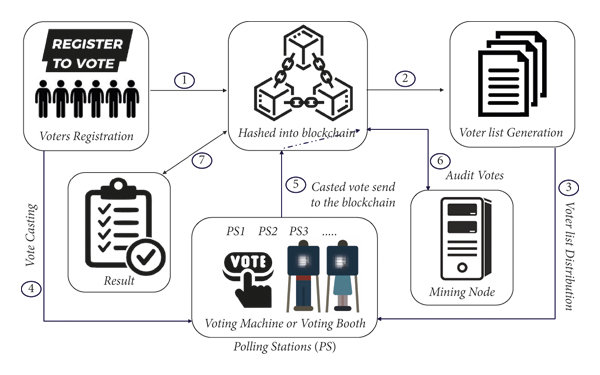The integration of blockchain technology in healthcare is reshaping how patient data is stored, accessed, and shared. With its decentralized, transparent, and immutable nature, blockchain offers a secure solution for managing sensitive medical information, addressing issues such as data breaches, privacy concerns, and inefficient data sharing between healthcare providers.
Traditionally, patient data has been stored in centralized databases, vulnerable to hacking and unauthorized access. Cyberattacks on healthcare systems have become alarmingly common, exposing patient records and sensitive data. Blockchain technology addresses these vulnerabilities by decentralizing data storage, distributing information across a network of nodes, and using cryptographic techniques to secure it. This decentralized structure makes it nearly impossible for hackers to tamper with or alter data, significantly enhancing patient data security.
Blockchain’s core strength lies in its use of cryptographic hashing, which protects data from unauthorized alterations. Once a patient’s medical information is added to the blockchain, it is encrypted and connected to the previous block of data, creating a chronological and unalterable chain. Any attempt to modify a record would require altering the entire chain, which would be detected immediately across the network. This level of security is especially beneficial in healthcare, where the accuracy and confidentiality of medical records are paramount.
Beyond security, blockchain also introduces a new level of transparency in healthcare data management. With permissioned blockchain systems, patients can control who accesses their medical records, deciding which doctors or healthcare providers have permission to view their data. This level of control empowers patients to manage their personal information actively while ensuring that their data is not accessible without consent. Patients no longer have to worry about their data being used without their knowledge or shared between institutions without their authorization.
Interoperability between healthcare providers is another area where blockchain excels. Currently, healthcare institutions often struggle to share patient information securely and efficiently, leading to delays in care and duplicated tests. Blockchain enables seamless and secure data exchange between providers, allowing doctors to access up-to-date patient information across facilities. With blockchain, healthcare providers can pull a patient’s complete medical history with confidence in its accuracy and timeliness, reducing errors and improving the quality of care.
Additionally, blockchain can streamline processes such as insurance claims and billing, which are often plagued by inefficiencies and errors. Smart contracts—self-executing contracts on the blockchain that activate once predefined conditions are met—can automate insurance claims, verifying patient eligibility, and processing payments without manual intervention. This automation minimizes paperwork and reduces human errors, saving time and resources for both patients and providers. Patients also benefit from transparent billing practices, as every transaction is recorded on the blockchain, making it easier to trace and verify.
Despite its potential, implementing blockchain in healthcare faces several challenges. Regulatory compliance and data privacy laws, such as the Health Insurance Portability and Accountability Act (HIPAA), impose strict guidelines on data handling, which blockchain must adhere to. Additionally, healthcare providers need to invest in infrastructure and training to adopt blockchain solutions effectively, which can be resource-intensive. Furthermore, the issue of scalability remains a concern, as the blockchain’s size grows with each transaction, potentially slowing down the network over time.
There’s also the question of data ownership. While blockchain allows patients to control access to their data, it raises legal and ethical questions about data ownership and the responsibilities of healthcare providers. Establishing clear policies on data ownership and ensuring that patients understand their rights will be essential as blockchain continues to integrate into healthcare.
Blockchain’s potential to revolutionize healthcare data security is undeniable. As more healthcare institutions recognize the value of blockchain, the industry is moving closer to a future where patient data is more secure, accessible, and manageable. With the right frameworks and technological advancements, blockchain could become the backbone of a more secure, transparent, and patient-centered healthcare system.




